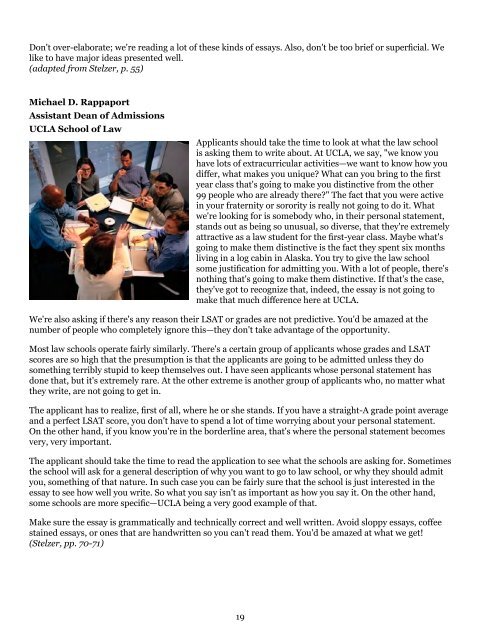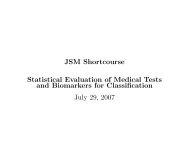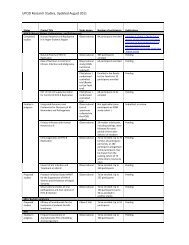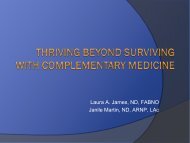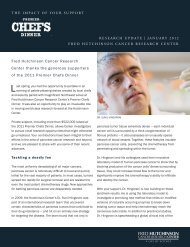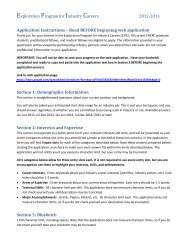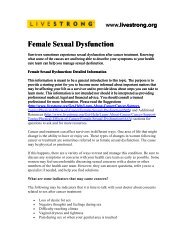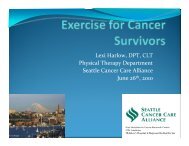Summer Undergraduate Research Program - Fred Hutchinson ...
Summer Undergraduate Research Program - Fred Hutchinson ...
Summer Undergraduate Research Program - Fred Hutchinson ...
Create successful ePaper yourself
Turn your PDF publications into a flip-book with our unique Google optimized e-Paper software.
Don't over-elaborate; we're reading a lot of these kinds of essays. Also, don't be too brief or superficial. We<br />
like to have major ideas presented well .<br />
(adapted from Stelzer, p. 55)<br />
Michael D. Rappaport<br />
Assistant Dean of Admissions<br />
UCLA School of Law<br />
Applicants should take the time to look at what the law school<br />
is asking them to write about . At UCLA, we say, "we know you<br />
have lots of extracurricular activities—we want to know how you<br />
differ, what makes you unique? What can you bring to the first<br />
year class that's going to make you distinctive from the other<br />
99 people who are already there?" The fact that you were active<br />
in your fraternity or sorority is really not going to do it . What<br />
we're looking for is somebody who, in their personal statement,<br />
stands out as being so unusual, so diverse, that they're extremely<br />
attractive as a law student for the first-year class. Maybe what's<br />
going to make them distinctive is the fact they spent six months<br />
living in a log cabin in Alaska . You try to give the law school<br />
some justification for admitting you. With a lot of people, there's<br />
nothing that's going to make them distinctive . If that's the case,<br />
they've got to recognize that, indeed, the essay is not going to<br />
make that much difference here at UCLA .<br />
We're also asking if there's any reason their LSAT or grades are not predictive . You'd be amazed at the<br />
number of people who completely ignore this—they don't take advantage of the opportunity .<br />
Most law schools operate fairly similarly . There's a certain group of applicants whose grades and LSAT<br />
scores are so high that the presumption is that the applicants are going to be admitted unless they do<br />
something terribly stupid to keep themselves out . I have seen applicants whose personal statement has<br />
done that, but it's extremely rare . At the other extreme is another group of applicants who, no matter what<br />
they write, are not going to get in .<br />
The applicant has to realize, first of all, where he or she stands. If you have a straight-A grade point average<br />
and a perfect LSAT score, you don't have to spend a lot of time worrying about your personal statement .<br />
On the other hand, if you know you're in the borderline area, that's where the personal statement becomes<br />
very, very important .<br />
The applicant should take the time to read the application to see what the schools are asking for . Sometimes<br />
the school will ask for a general description of why you want to go to law school, or why they should admit<br />
you, something of that nature . In such case you can be fairly sure that the school is just interested in the<br />
essay to see how well you write . So what you say isn't as important as how you say it . On the other hand,<br />
some schools are more specific—UCLA being a very good example of that.<br />
Make sure the essay is grammatically and technically correct and well written . Avoid sloppy essays, coffee<br />
stained essays, or ones that are handwritten so you can't read them. You'd be amazed at what we get!<br />
(Stelzer, pp. 70-71)<br />
19


